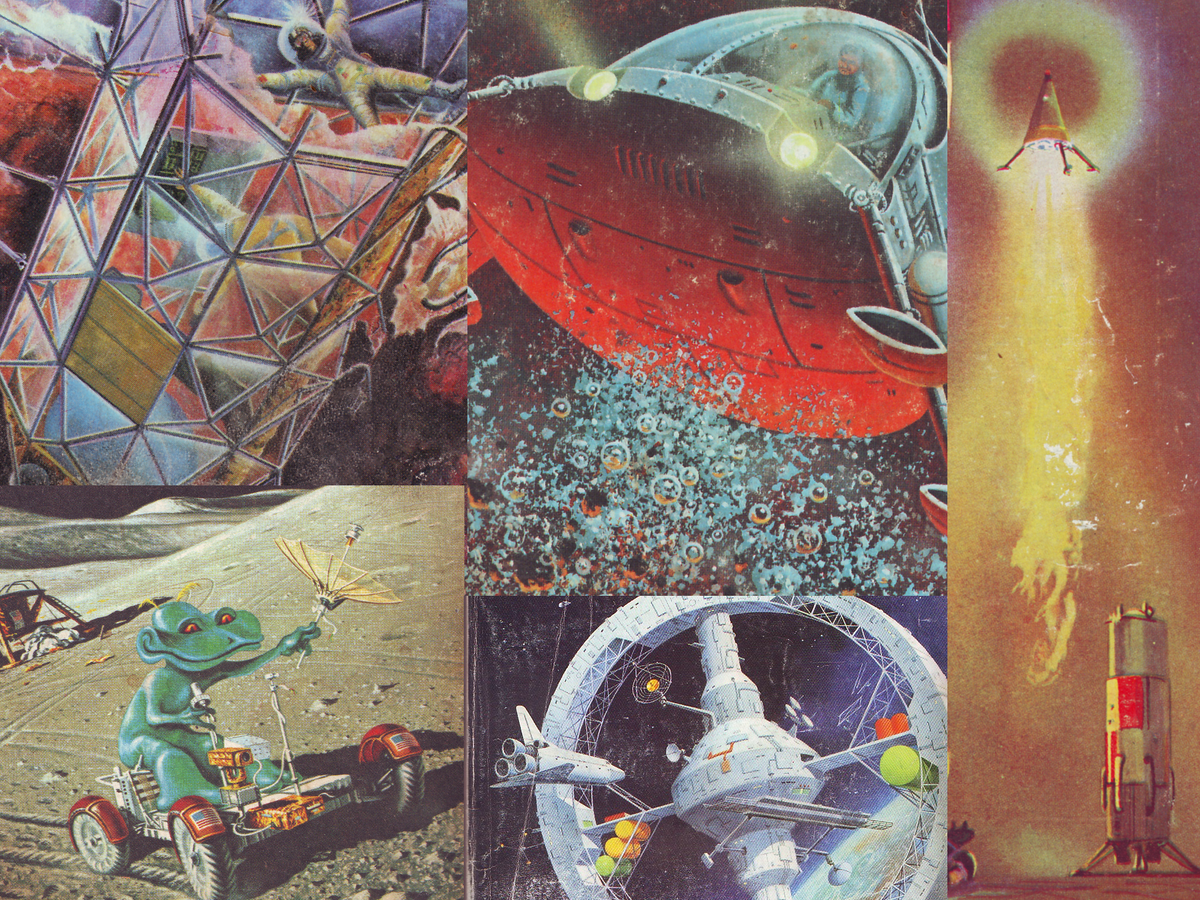Tangent Futures - Old Science Fiction
Old science fiction is amazing.

Old science fiction is amazing.
It was a great and grand movement, one of the original fandoms. It was cheap, pulpy, accessible, yet tried for imperious, serious acclaim as an intellectual movement. It was trashy, many naked women on the covers, and tried to ask and answer questions of serious philosophy and spiritual importance. It titillated, it patronised. It started short lived mystery cults (Shaver mystery), was written by the I-Ching (Man In The High Castle). It reflects the generations who wrote it, and imagines the generations after.
Often, these future generations act just like the authors.
In one Analog magazine from the 70s, there's an article by Norman Spinrad about the real, plausible issues to resolve before building the first space colonies. That one of the luminaries of the genre considered this not only possible but likely, in their lifetimes, has an optimism to it that's charming. A future which later got shut down, but in old magazines you can get an imprint of it.
In another, a reviewer complains that the newly released Star Wars (1977) doesn't have accurate space physics. They didn't understand the tide that movie was about to wash over them.
Yet its tail end led to the great 80s/90s science fiction TV and film boom. The best Star Trek came out of the exhaust of science-fiction, and Star Trek's 2010s corruption was perhaps due to its absence.
It encompasses huge tracts of political theory (God Emperor of Dune), deep theology (later Philip K Dick) with reams and reams of forgettable man-in-space dad books. Science Fiction is a huge mess, and just trawling through it is satisfying, trying to unearth hidden gems.
The magazines are worth grabbing for seeing that the reader correspondence was quite erudite. The magazines, as much as the media allowed, have an aura of participation to them, more like a forum than a fandom. The magazines at least seemed to be well aware of and informed by its audience.
It's a snapshot of the past, pretending it knew the future. I've yet to read a science fiction book that underestimated the technological progress we'd make.
There's a faith in the future that we, mired in difficult, complex social and environmental problems, can only marvel at. Partly it's ignorance of the conseqences of modernity, partly it's an assumption that technology will resolve these problems before they became severe. A lot of sci-fi rarely bothers to ask questions about power, the role of technology in consolidating it, or if these power interests even want to solve these problems. The stuff that does is worth reading (Red Mars). With decades of hindsight, its almost touchingly naive how much faith they had.
Old science fiction has a sort of millenarianism to it. It believed at some point the world, its relations of power and wealth, would be drastically changed by technology. It's a product of progressivist hegemony at its peak, long before its gradual erosion that we are living through now. Reading it fifty years hence, we can only hope for a second or third hand afterglow of their vision, but it is still there.
Turns out, technology advanced in a more linear way than a lot of these books thought it would. Often, sci-fi tech is a wide ranging progression of technology of the time. So cars that fly, kitchens that make you dinner, home assistants that reduce chores, faster transport. Automatic versions of regular life things.
It gives you a sense of just how blinkered our own technological progression has been. Computing overpowered all other advances. Space travel and flight actually regressed, and a lot of our daily lives have not advanced or become automated. There's no automatic laundry robot.
What we got was not technology as a way to enhance everyday life, an assumption that would have been understandable in the 1980s, but instead new technologies of media. A way of escaping everyday life. Some science fiction saw this coming.
Gradually, as cultural stagnation set in, sci-fi's veneer of optimism started to look dated.
Did sci-fi become obsolete? It happened to westerns. After a while, they become too far removed from regular experience, the tropes are all worn out, the emotional landscape of it doesn't resonate.
Do we even believe that science and technology will fix problems any more? Does anyone still expect to live in space? That science and technology would make our lives easier, allow us to life more meaningful lives? Star Trek used to think this, and its value is still important.
Tellingly, Star Trek gave it up, went the way of other science fiction and inverted. It's a cheap trick, but it's also an insight into how people feel about it. The trouble with that is, it becomes a cycle that will strengthen over time. No-one wins if techno-dystopias feed into every life. We don't want to be reading Ready Player One in the future.
The really good part of old science fiction isn't the science, its the optimism. This is the part we tease away from robot maids and flying cars, clean off the dust and restore. So if science cant be relied upon as a good vehicle for utopian, positive fiction, what can be? This is an important question. As materialism wanes, what replaces it?
